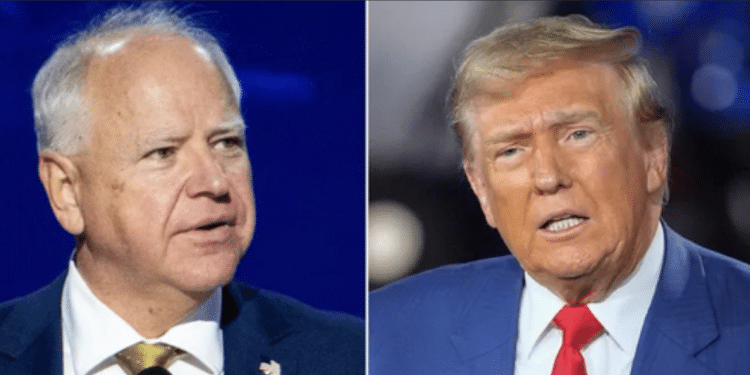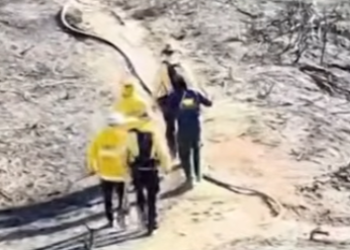When Grievance Upstages Grief — Trump, Walz, and the Politics of Condolence
An Editorial by Staff Writer David R.
At moments of national tragedy, the expectation is simple: leaders pause partisan warfare and speak to the heart of the nation. The recent assassination of Minnesota Representative Melissa Hortman and her husband was one such moment. Yet former President Donald Trump, aboard Air Force One, used his platform not to unify, but to denounce. His refusal to call Governor Tim Walz, labeling him “whacked out” and “a mess,” raises questions not just about optics, but the ethics of presidential conduct in the face of violence.
Rep. Hortman and her husband were gunned down by a politically motivated attacker posing as law enforcement. The assailant was arrested with a list of dozens of elected officials, marking this as a direct assault on democratic institutions. Minnesota, reeling, turned to its leaders for solace. Governor Walz expressed grief, unity, and resilience. Trump, instead, chose grievance.
A President’s Duty — or Opportunity Missed?
Critics argue that Trump’s job in this moment was clear: offer condolences, stand above the fray, and call the governor. This isn’t about personal rapport or partisan vendettas—it’s about the symbolic gesture of unity when democracy is wounded. By refusing to call Walz and instead insulting him midair, Trump missed an opportunity to demonstrate statesmanship. The optics weren’t just “not presidential”—they were deliberately antagonistic.
This isn’t new for Trump. His political strategy often blends personal grievance with calculated defiance. The refusal to call Walz isn’t just a snub—it’s a message to his base: I won’t play by their rules, even in tragedy. But in doing so, he redefines what leadership in mourning looks like. Less Lincoln at Gettysburg. More reality show reunion.
The Broader Implications
There’s a deeper issue here. When political violence becomes just another arena for spectacle, the lines between tragedy and performance blur. Trump’s commentary wasn’t just coarse—it was indifferent to the very real pain of those affected. And for a nation increasingly desensitized to political vitriol, indifference from the top normalizes cruelty at the bottom.
Grief is not partisan. Or at least, it shouldn’t be. In refusing a simple phone call, Trump showed us that the theater of grievance still trumps the responsibility of governance in his political playbook. But the rest of us—voters, readers, citizens—can choose not to applaud.
There’s a lot of international issues on the President’s desk but, we hope he takes the time to formally reach out.
Ever wonder about the misleading issues associated with Fertilizer?











